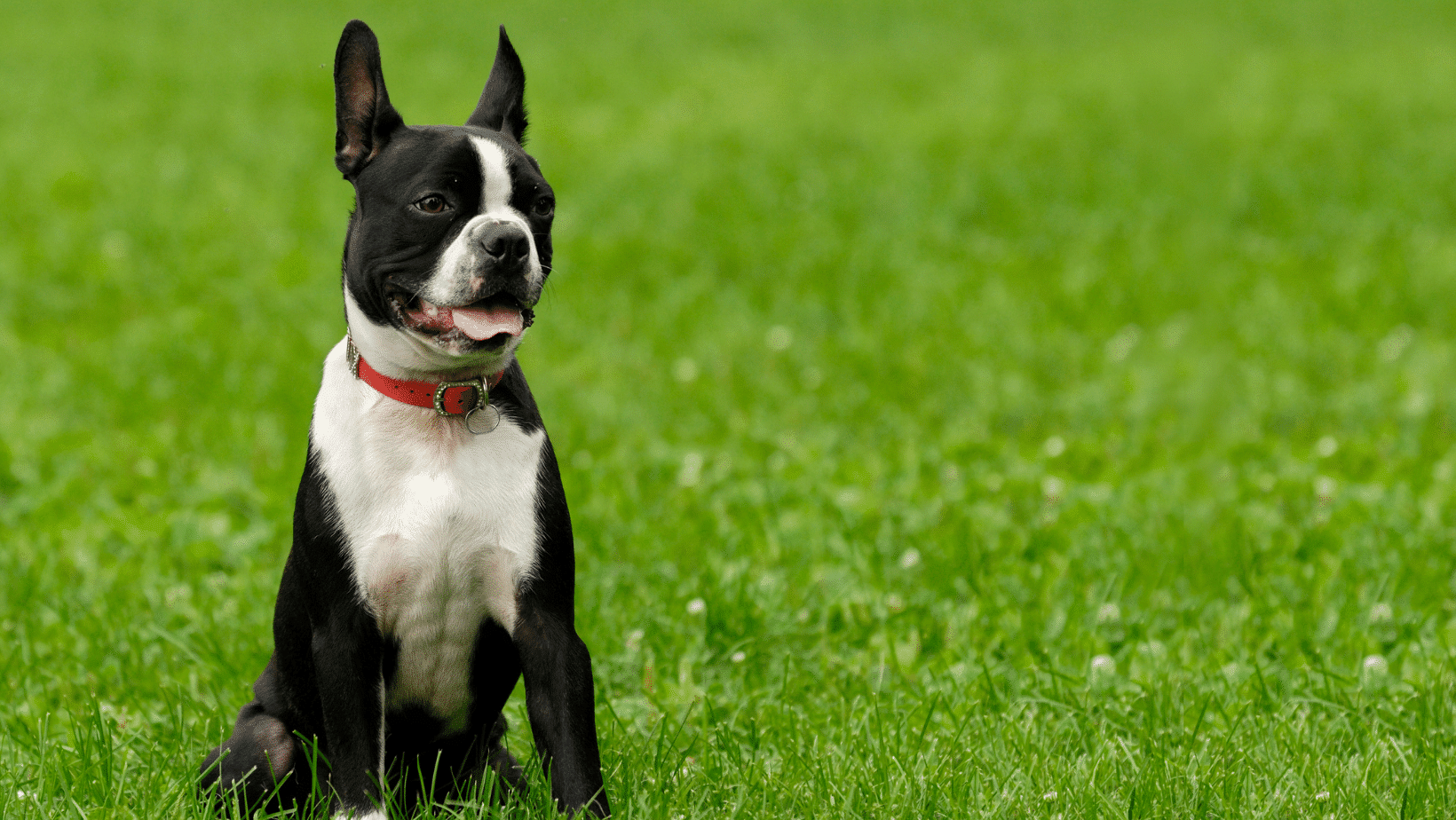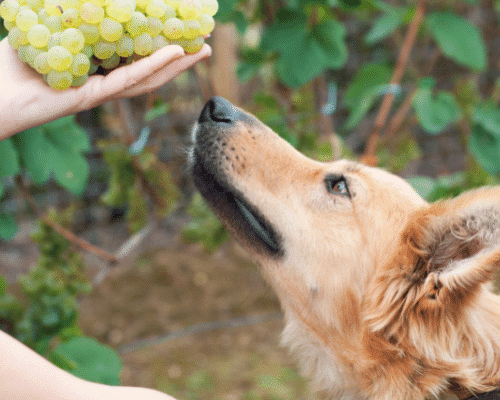
Many of us humans get allergies, and so do our Boston Terriers. As a matter of fact, your Boston Terrier and you can be allergic to the same things, and sometimes (though rarely) to each other. Depending on what the sufferer is allergic to, managing your Boston Terrier allergies can be overwhelming emotionally and financially.
Food allergies are usually triggered by the protein component of dog food. Your Boston Terrier may be allergic to chicken, turkey, pork, beef, lamb, or horse meat. Because Boston Terriers have a very sensitive stomach and suffer from intestinal gas, their digestive system goes haywire when they eat something they are allergic to. A simple diet change will help you in the step to curing your dog’s allergy. Switch your dog to a low antigen diet, preferably something he hasn’t eaten yet like potato, rabbit, venison, or duck.
Types of Boston Terrier Allergies
There are several types of Boston Terrier allergies. Your Boston Terrier’s allergies may be triggered by one or several of the following: inhalants, food, contact, fleas, and bacteria.
Some Boston Terrier allergies are triggered by inhalants. Boston Terriers can be allergic to the same things as humans are, like all types of pollens, mildew, molds, and dust mites. Most dogs develop these allergies from spring until fall. Unlike us, Boston Terriers don’t get runny noses when they inhale something they’re allergic to. Instead, they get really itchy. They’ll scratch, chew and lick every area of their body including their feet.
The reason for food allergies is that the Boston Terrier becomes allergic to the protein element of the food that you are usually feeding your dog. The Boston Terrier’s reaction will be to itch a lot, have gastrointestinal problems, get a chronic ear infection or have respiratory distress.
Foods Boston Terriers Shouldn’t Eat
Boston Terriers are known for their big personalities and sensitive stomachs. While they may love to beg for table scraps, there are a number of foods that are actually toxic or harmful to Boston Terriers.
Here is a list of foods that Boston Terriers should not eat:
- Grapes and raisins
- Avocado
- Chocolate
- Alcohol
- Caffeine
- Xylitol
- Macadamia nuts
- Onions and garlic
- Milk and dairy products
- Eggs
- Soy
- Corn
- Wheat
If your Boston Terrier ingests any of these foods, it is important to contact your veterinarian immediately.
Here are some tips for feeding your Boston Terrier a healthy and safe diet:
- Choose a high-quality dog food that is specifically designed for Boston Terriers.
- Avoid foods that contain artificial ingredients, fillers, and preservatives.
- Feed your Boston Terrier a variety of foods, including fresh meats, fruits, and vegetables.
- Avoid giving your Boston Terrier table scraps or human food.
- If you are unsure whether or not a food is safe for your Boston Terrier to eat, consult with your veterinarian.
Here is a creative and engaging way to think about the foods that Boston Terriers should not eat:
Imagine your Boston Terrier as a little superhero. They have big hearts and brave souls, but they also have a weakness: their stomachs. Just like Superman needs to avoid Kryptonite, your Boston Terrier needs to avoid certain foods that can make them sick.
Here is a fun analogy to help you remember the foods that Boston Terriers should not eat:
Grapes and raisins: These are like kryptonite for Boston Terriers. Even a small amount can cause kidney failure.
Avocado: This is like kryptonite for Boston Terriers’ hearts. It can cause heart problems and even death.
Chocolate: This is like kryptonite for Boston Terriers’ nervous systems. It can cause seizures, tremors, and even death.
Alcohol: This is like kryptonite for Boston Terriers’ livers. It can cause liver failure and even death.
Caffeine: This is like kryptonite for Boston Terriers’ hearts. It can cause anxiety, restlessness, and even heart problems.
Xylitol: This is like kryptonite for Boston Terriers’ blood sugar levels. It can cause a sudden drop in blood sugar levels and even death.
Macadamia nuts: These are like kryptonite for Boston Terriers’ muscles. They can cause muscle weakness, paralysis, and tremors.
Onions and garlic: These are like kryptonite for Boston Terriers’ blood cells. They can cause anemia.
Milk and dairy products: These can cause digestive problems in Boston Terriers, such as vomiting and diarrhea.
Eggs: These can cause allergies in Boston Terriers.
Soy: This can cause digestive problems in Boston Terriers, such as vomiting and diarrhea.
Corn: This is a common allergen in Boston Terriers.
Wheat: This is another common allergen in Boston Terriers.
By avoiding these foods, you can help keep your Boston Terrier healthy and safe.
Boston Terrier allergies can be sparked off by inhalants and the dog will get irritated by something floating around in the air. But unlike us, dogs won’t get a runny nose, sneeze, or allergic rhinitis. They will scratch themselves when they inhale something they are allergic to. The best way to prevent this is to keep your house clean. Vacuum and tidy up your place every day, especially your Boston Terrier’s bed. While doing this though, keep your dog in a separate place room or something.
Living with Female Boston Terrier Allergies
Remember how your mom fusses over you? Well, you really have to fuss over your Boston Terrier to prevent his or her allergies from acting up. If your Boston Terrier is female, take that worrying up a notch because female dogs usually get more allergies than male ones. Keep your house and your pet’s living area clean. Bring your Boston Terrier to a veterinarian regularly.
Because Boston Terriers are very expressive and doting, people and families love having them as a pet. For this reason, it is important to take proper measures to ensure that your Boston Terrier will be healthy and live a happy long life.
Living with a Boston Terrier with Allergies
Living with a Boston Terrier with allergies can be challenging, but it is definitely possible. Here are a few tips:
- Keep your home clean and free of allergens. This means vacuuming and dusting regularly, especially in areas where your Boston Terrier spends a lot of time.
- Bathe your Boston Terrier regularly with a hypoallergenic shampoo. This will help to remove allergens from their skin and fur.
- Avoid giving your Boston Terrier table scraps or human food. Many human foods contain allergens that can trigger your Boston Terrier’s allergies.
- Feed your Boston Terrier a high-quality diet that is free of allergens. If you are unsure which foods your Boston Terrier is allergic to, talk to your veterinarian.
- Monitor your Boston Terrier’s condition closely. If you notice any signs of allergies, such as itching, scratching, or vomiting, take your Boston Terrier to the veterinarian immediately.
Coping with Boston Terrier Allergies
Coping with Boston Terrier allergies can be frustrating, but it is important to remember that you are not alone. There are many other Boston Terrier owners who are dealing with the same challenges. Here are a few tips:
- Join a support group for Boston Terrier owners. This is a great way to connect with other people who understand what you are going through.
- Read books and articles about Boston Terrier allergies. This will help you to learn more about the condition and how to manage it.
- Talk to your veterinarian about your Boston Terrier’s allergies. They can offer you advice and support.
Support for Boston Terrier Owners
There are a number of resources available to support Boston Terrier owners who are dealing with allergies. Here are a few examples:
- Online support groups: There are a number of online support groups for Boston Terrier owners, such as the Boston Terrier Club of America Health Committee’s Allergy Support Group.
- Books and articles: There are a number of books and articles available about Boston Terrier allergies, such as Boston Terriers: A Complete and Comprehensive Owner’s Guide by Dr. Sarah Wilson.
- Veterinarians: Veterinarians can offer advice and support to Boston Terrier owners who are dealing with allergies. They can also prescribe medications and other treatments to help manage the condition.
By following these tips, you can help to make life a little bit easier for you and your Boston Terrier with allergies.
Let us know below if your Boston Terrier is or has suffered from allergies. If so, how did you deal with it and what advice can you share with other Boston Terrier owners to help them as well?




